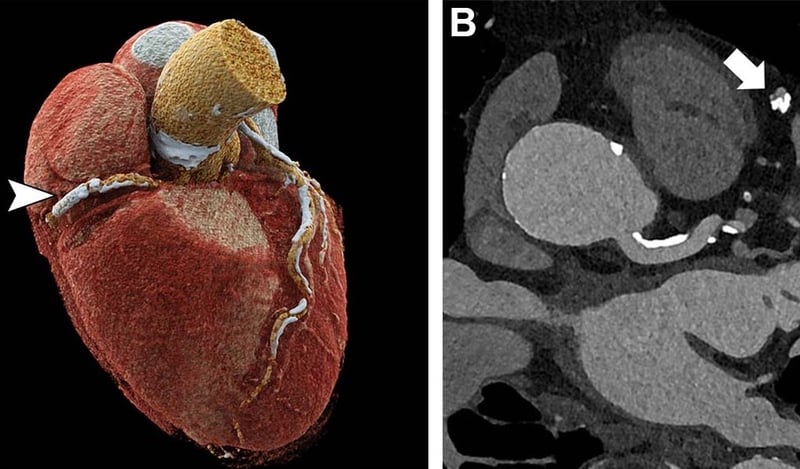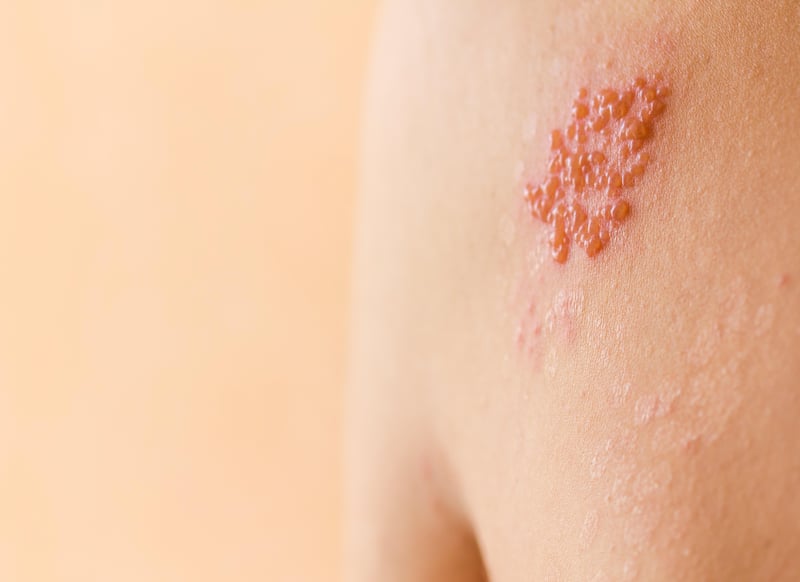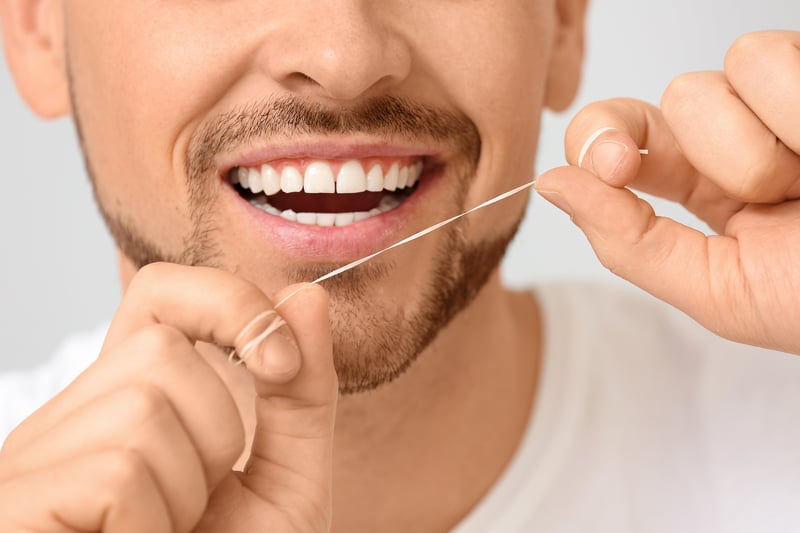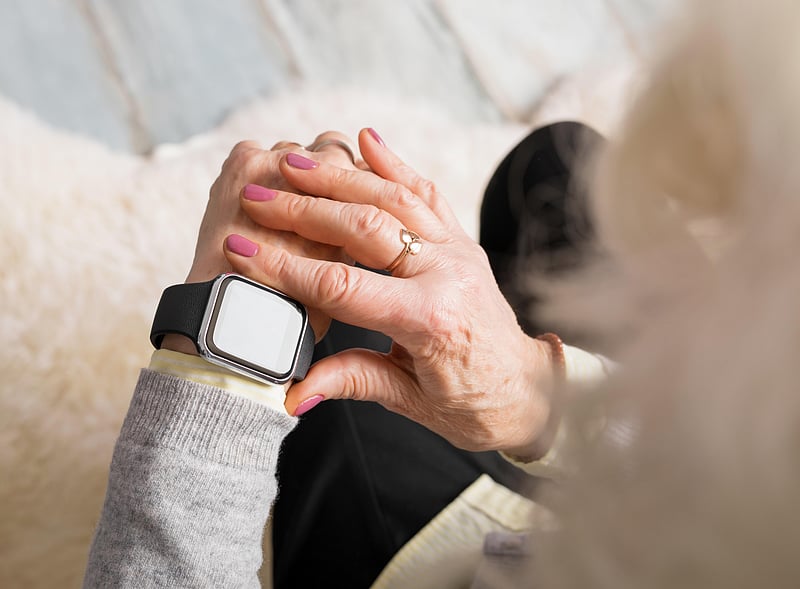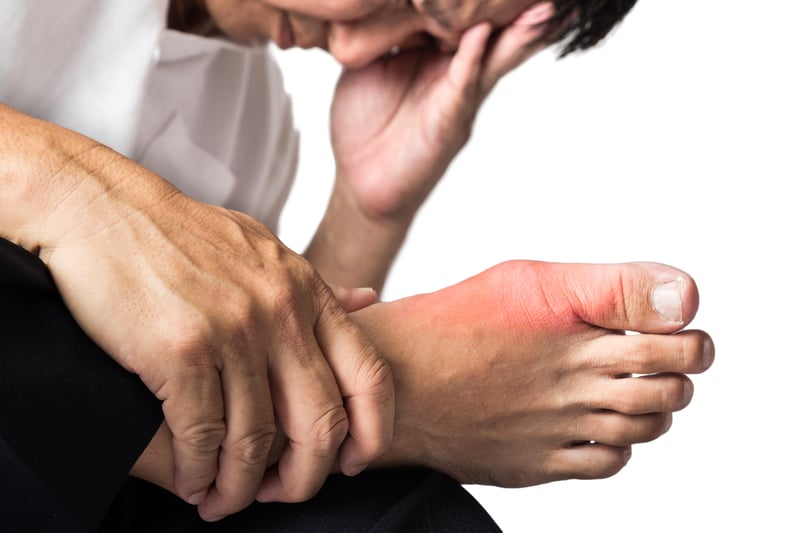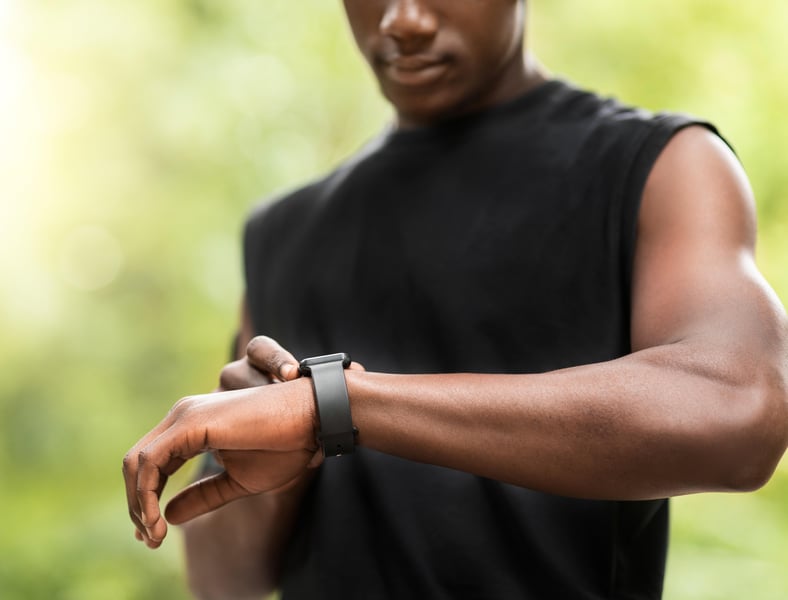Manténgase sano!
Resultados de su búsqueda "Heart Attack: Management / Prevention".
Resultados de noticias de salud - 79
Many Americans don't realize how everyday habits and overlooked health issues can increase their risk for heart disease, according to a new Cleveland Clinic survey.
The nationwide survey found numerous gaps in heart health knowledge. For ...
- HealthDay Reporter
- India Edwards
- |
- February 25, 2025
- |
- Página completa
A new study has found no evidence that COVID vaccines increase the risk of sudden cardiac arrest in young athletes, despite numerous claims that circulated during the pandemic.
The six-year study -- published Feb. 24 in JAMA Network Open -- compared sudden
Many Americans don’t see anything wrong with taking daily low-dose aspirin, even though experts have concluded its risks outweigh its benefits, a new survey has found.
Nearly half (48%) of people incorrectly think that the benefits of taking low-dose aspirin daily to reduce the risk of heart attack or stroke outweigh the risks, accord...
- HealthDay Reporter
- Dennis Thompson
- |
- February 4, 2025
- |
- Página completa
Niacin is an essential B vitamin, but new research reveals that too much of it may harm your heart.
Found in many foods that millions of Americans eat, excessive amounts of niacin can trigger inflammation and damage blood vessels, scientists report in the Feb. 19 issue of the journal Nature Medicine.
"The ave...
- HealthDay Reporter
- Robin Foster
- |
- February 20, 2024
- |
- Página completa
A standard blood test can reveal whether a person is at high risk of having a heart attack within six months, a new study shows.
Researchers identified dozens of biomarkers in blood linked to the risk of a first heart attack, according to a report published Feb. 12 in the journal Nature Cardiovascular Research.
<...- HealthDay Reporter
- Dennis Thompson
- |
- February 16, 2024
- |
- Página completa
Hispanic women who experience spikes in blood pressure while pregnant may also face higher heart risks years later, new research shows.
These "hypertensive disorders of pregnancy" (HDP) -- conditions such as preeclampsia, eclampsia and gestational hypertension -- may even have a greater role to play in certain heart risks than regular high blood pressure, the researchers noted.
"The...
- HealthDay Reporter
- Ernie Mundell
- |
- December 5, 2023
- |
- Página completa
MONDAY, Nov. 13, 2023 (Healthday News) -- In a finding that could change the landscape of heart disease care, the wildly popular weight-loss drug Wegovy has proved its mettle in protecting the heart after lowering the risk of cardiac problems in patients by 20%.
The results from this large, international study had been eagerly awaited by scientists and doctors alike. Why? It is the first ...
- HealthDay Reporter
- Robin Foster
- |
- November 13, 2023
- |
- Página completa
A new, more comfortable wearable electrocardiogram (ECG) device could be on its way.
Researchers from Australia and India have created a compact, lightweight, gel-free hexagonal-shaped ECG patch that they say is ideally suited for point-of-care diagnostics.
For those at risk, having a wearable device that can detect heart problems and assess overall cardiac health can save lives.
- HealthDay Reporter
- Cara Murez
- |
- November 1, 2023
- |
- Página completa
Cardiac rehabilitation is a key part of recovery from a heart attack, helping to prevent another, perhaps more severe one.
About 800,000 people in the United States have a heart attack every year, about one-quarter of whom have already had a heart attack, according to the U.S. Centers for Disease Control and Prevention.
But research has found that participating in cardiac rehab...
- HealthDay Reporter
- Cara Murez
- |
- September 20, 2023
- |
- Página completa
Millions of people who suffer from sleep apnea go to bed at night with a motorized device called a CPAP machine.
Now, two new studies confirm the treatment has significant benefits not just on quality of sleep, but also for keeping people's hearts healthy.
Together, the studies may offer more reasons to endure the not-always-comfortable treatment known as continuous positive...
- HealthDay Reporter
- Cara Murez
- |
- September 11, 2023
- |
- Página completa
After a heart attack, elderly adults have better odds for improved health and survival if all major heart vessels are cleared, not just the one that caused the heart attack.
Because these patients often have other medical conditions and may be frail, doctors frequently opt to open only the "culprit" blood vessel and leave other partially blocked vessels alone.
But new research...
- HealthDay Reporter
- Steven Reinberg
- |
- August 28, 2023
- |
- Página completa
Fatal heart disease in the United States dropped about 4% a year between 1990 and 2019, but Americans need to quit smoking, drinking and overeating or those gains could be wiped out, according to new research.
The declining rates of fatal heart disease have stalled, according to the research from Rutgers University-New Brunswick in New Jersey.
"The overall numbers are good. We saw ...
- HealthDay Reporter
- Cara Murez
- |
- August 8, 2023
- |
- Página completa
Sleep apnea may increase the risk of heart attack and stroke as erratic breathing causes oxygen levels to drop, new research shows.
"These findings will help better characterize high-risk versions of obstructive sleep apnea," said co-author Ali Azarbarzin, director of the Sle...
- HealthDay Reporter
- Steven Reinberg
- |
- July 31, 2023
- |
- Página completa
For years, older adults took a baby aspirin a day to help ward off a first-time heart attack or stroke. Now yet another study is showing the risks are not worth it for most.
Specifically, researchers found the risk of brain bleeding while using low-dose aspirin outweighed any potential benefit against stroke for relatively healthy older adults -- that is, those with no history of heart di...
- HealthDay Reporter
- Amy Norton
- |
- July 27, 2023
- |
- Página completa
The extreme heat and choking wildfire smoke blanketing wide swaths of the United States this summer are actively dangerous to heart health, a new study reports.
Days where soaring heat combines with fine particulate air pollution can double a person's risk of a fatal heart attack, researchers have found.
"Heat wave exposure interacts synergistically with fine particulate pollution t...
- HealthDay Reporter
- Dennis Thompson
- |
- July 25, 2023
- |
- Página completa
An experimental implant now under development could serve as a temporary monitor and pacemaker for ailing heart patients -- then dissolve away when it's no longer needed.
The soft, lightweight and transparent implant is about the size of a postage stamp, and is made of polymers and metals that are biodegradable, researchers reported July 5 in the journal
The benefits of noninvasive imaging may soon be available to patients at high risk of coronary artery disease, according to researchers studying a newer technology.
That technology is called ultra-high-resolution coronary CT angiography.
Currently, patients have coronary CT angiography (CCTA), which is highly effective for ruling out coronary artery disease when it's used in patient...
- HealthDay Reporter
- Cara Murez
- |
- June 20, 2023
- |
- Página completa
New research finds that many of those who have received an implanted cardiac device to extend their life also have mood disorders, including anxiety, depression and PTSD.
"Implantable cardioverter defibrillators [ICDs] are effective at extending patients' lives, but we need to make sure that's a good quality life,"said study author
- HealthDay Reporter
- Cara Murez
- |
- June 19, 2023
- |
- Página completa
Testosterone replacement therapy is safe for most men with heart problems who also have been diagnosed with a low testosterone disorder, a new clinical trial has concluded.
The trial found that testosterone replacement did not raise these patients' incidence of heart attack, stroke or heart-related death in a group of men with both heart problems and hypogonadism -- a condition in which l...
- HealthDay Reporter
- Dennis Thompson
- |
- June 16, 2023
- |
- Página completa
Quitting smoking after a cancer diagnosis can deliver a big payoff for another major health concern: the risk of heart attack or stroke.
Cancer patients who kept smoking had a nearly doubled risk of either of those emergencies, as well as death from cardiovascular disease, new research showed.
"A cancer diagnosis is an extremely stressful life event, which often leads to significant...
- HealthDay Reporter
- Cara Murez
- |
- June 1, 2023
- |
- Página completa
It's standard for heart attack survivors to take beta blocker medications for years afterward, but a new study suggests that may be unnecessary for people who've had a milder heart attack.
Researchers found that among heart attack survivors whose hearts still had normal pumping ability, there was no added benefit from using beta blockers for more than one year. They were no less lik...
- HealthDay Reporter
- Amy Norton
- |
- May 4, 2023
- |
- Página completa
Women who have a heart attack at a younger age tend to have worse outcomes and are more likely to return to the hospital than their male counterparts.
More significant underlying risk factors could be why, according to new research.
Researchers called for greater public awareness around heart attacks in young women, including the unique symptoms they experience and the care they nee...
- HealthDay Reporter
- Cara Murez
- |
- May 2, 2023
- |
- Página completa
Millions of middle-aged folks may be walking around with no symptoms of heart disease, and yet they still face a higher risk for a heart attack, new research shows.
What gives? Subclinical or silent heart disease may be responsible. This is the early thickening or hardening of the heart arteries that can worsen over time and cause crushing chest pain, known as angina, or even a heart...
- HealthDay Reporter
- Denise Mann
- |
- March 28, 2023
- |
- Página completa
Flu kills more than 500,000 people globally each year and leads to heart problems for many others. Publicizing those potential cardiac ills may spur folks to get their annual flu vaccine, researchers say.
Danish researchers who studied vaccination messaging methods said the two best ways to get people to roll up their sleeves were either a simple reminder or by noting the link between con...
- HealthDay Reporter
- Cara Murez
- |
- March 7, 2023
- |
- Página completa
After a heart attack, home rehab can literally be a lifesaver, a new study finds.
Taking part in a home-based cardiac rehabilitation program lowered the risk of dying from heart complications by 36% within four years, compared with patients who were not in a rehab program, researchers report.
"Cardiac rehabilitation programs save lives," said lead researcher
Folks who have trouble falling or staying asleep may be more likely to have a heart attack.
This is the main takeaway from new research linking insomnia to heart woes. Specifically, people with insomnia were 69% more likely to have a heart attack than folks without the sleep disorder. These rates were even higher among people with both diabetes and insomnia, the study showed.
"Insom...
- HealthDay Reporter
- Denise Mann
- |
- February 27, 2023
- |
- Página completa
Ambar Marcus didn't think anything of going to the follow-up ultrasound her doctor recommended around 22 weeks of pregnancy -- until she noticed how long it was taking.
"The technician was a lovely lady who chatted with me the whole time, but I noticed it felt like a very long appointment,"Marcus, who lives in Silver Spring, Md., recalled. "This is definitely the longest echo I've ever go...
- HealthDay Reporter
- Dennis Thompson
- |
- February 24, 2023
- |
- Página completa
Keeping your heart healthy has numerous benefits, including a reduced risk for coronary heart disease, stroke, heart attack and even
The holiday season is filled with to-do lists, but one should rise to the top: Take care of your heart.
Whether from stress, cold weather or falling out of good habits in terms of eating, sleeping and drinking, heart attack rates spike as much as 40% between Christmas and New Year's, according to cardiologist
As yet another winter blizzard barrels down on the U.S. East Coast, the the American Heart Association (AHA) is cautioning people to take care when shoveling snow, since the exertion and the cold can cause serious heart problems.
Many people, especially those who don't exercise regularly, may face an increased risk of a heart attack or sudden cardiac arrest after shoveling heavy snow, ac...
- HealthDay Reporter
- Carole Tanzer Miller
- |
- December 16, 2022
- |
- Página completa
Liver disease can affect heart health and that includes even early forms of the disease, a new study reveals.
While it had previously been known that nonalcoholic fatty liver disease was associated with cardiovascular death, the relationship was poorly understood, said researcher Dr. Alan Kwan. He is a c...
- HealthDay Reporter
- Cara Murez
- |
- December 8, 2022
- |
- Página completa
People who've had a bout of shingles may face a heightened risk of heart attack or stroke in later years, a new, large study suggests.
Anyone who ever had chickenpox can develop shingles -- a painful rash that is caused by a reactivation of the virus that causes chickenpox. About one-third of Americans will develop shingles in their lifetime, according to the U.S. Centers for Disease...
- HealthDay Reporter
- Amy Norton
- |
- December 5, 2022
- |
- Página completa
The winter holidays are a time of celebrating and sharing precious time with family and friends, but they can also be deadly: More people die of heart attacks on Christmas Day than on any other day of the year.
Experts aren't certain what's behind that troubling fact, but they offer some suggestions to help ensure that you and your loved ones aren't among them.
"The holidays are a ...
- HealthDay Reporter
- Cara Murez
- |
- December 2, 2022
- |
- Página completa
Black adults who undergo a common procedure to open up clogged arteries are readmitted to the hospital more often than their white peers. They're also more likely to die in the years after treatment, a new study finds.
Researchers looked at how patients fared following balloon angioplasty and coronary stenting -- "one of the most common cardiovascular procedures performed in the U.S....
- HealthDay Reporter
- Alan Mozes
- |
- November 30, 2022
- |
- Página completa
While dental and medical care are thought to be related, researchers wondered what impact oral care might have on a serious heart condition.
A University of Michigan team studied more than 2,000 patients who had a heart attack in 2017. The patients had either received periodontal care, dental cleanings or no or...
- HealthDay Reporter
- Cara Murez
- |
- September 19, 2022
- |
- Página completa
Research has linked heart disease to specific autoimmune diseases such as rheumatoid arthritis and lupus. Now, a huge study shows that autoimmune diseases as a group increase your chances of developing heart ills.
Autoimmune diseases such as psoriasis, multiple sclerosis, lupus erythematosus and type 1 diabetes occur when the body engages in friendly fire against its own organs, tissues, ...
- HealthDay Reporter
- Denise Mann
- |
- August 31, 2022
- |
- Página completa
A new smartwatch could be a key player in preventing heart attacks among people suffering from risky heart conditions, a new study claims.
Using the smartwatch to track their heart health, patients in a home-based cardiac rehab program were more than 20% less likely to land in the hospital t...
- HealthDay Reporter
- Dennis Thompson
- |
- August 30, 2022
- |
- Página completa
When gout flares up, the joint pain is often excruciating. But that's not the only worry tied to this common inflammatory arthritic condition.
A new British study warns that gout flares double the risk for heart attack or
- HealthDay Reporter
- Alan Mozes
- |
- August 3, 2022
- |
- Página completa
When they suffer a heart attack, Black and Hispanic patients in the United States receive subpar care compared with white patients, new research reveals.
The study of more than 87,000 insured heart attack patients found that Blac...
- HealthDay Reporter
- Steven Reinberg
- |
- August 2, 2022
- |
- Página completa
Medically supervised exercise programs can do heart patients a lot of good, but few people of color take part in them -- regardless of income, new research finds.
The study, of more than 100,000 U.S. patients, found that while all were eligible for cardiac rehabilitation, only...
- HealthDay Reporter
- Amy Norton
- |
- June 27, 2022
- |
- Página completa
There's some discouraging news for baby boomers.
Americans born between 1948 and 1965 are more likely than the generations that preceded them to have multiple health problems as they age, a new study shows.
And, many develop ...
- HealthDay Reporter
- Denise Mann
- |
- June 16, 2022
- |
- Página completa
One year of testosterone therapy for men with low levels of the hormone does not appear to increase their risk for heart problems, British researchers found.
"We were unable to find evidence ... that testosterone increases risks of mortality or cardiovascular and/or cerebrovascular [heart and/or stroke] events in the short- to medium-term in men with low testosterone," said study leader D...
- HealthDay Reporter
- Robert Preidt
- |
- June 9, 2022
- |
- Página completa
It's tempting to binge-watch TV shows, and it might be hard to get off the couch after just one or two episodes.
But it could be worth it.
Researchers calculated that if people committed to watching just under an hour of TV a day, 11% of coronary heart disease cases could be eliminated.
Thoug...
- HealthDay Reporter
- Cara Murez
- |
- May 25, 2022
- |
- Página completa
If you're poor and have a severe type of heart attack, the chance you'll live through it is significantly lower than that of someone with more money, new research shows.
The finding underscores the need to close a divide in health care that hits low-income people hard, said lead researcher Dr. Abdul...
- HealthDay Reporter
- Cara Murez
- |
- May 23, 2022
- |
- Página completa
Quitting smoking can give heart disease patients nearly five additional years of life without heart problems, according to a new study.
"Kicking the habit appears to be as effective as taking three medications for preventing heart attacks and strokes in those with a prior heart attack or procedure to open blocked arteries," said study author Dr. Tinka van Trier, of Amsterdam University Me...
- HealthDay Reporter
- Robert Preidt
- |
- April 12, 2022
- |
- Página completa
When the world gets you down, go for a walk and make your heart happy.
Physical activity is one of the best ways to manage stress and boost your mood, while reducing your risk for
If you believe an occasional tipple is good for your heart, a new study may make you reconsider the notion.
Some previous research has suggested that light drinking may benefit the heart, but this large study concluded that any amount of drinki...
- HealthDay Reporter
- Robert Preidt
- |
- March 28, 2022
- |
- Página completa
Millions of Americans use smartwatches or fitness trackers to check on their heart rate, but the accuracy may fall short for people of color, a new research review finds.
The analysis, of 10 published studies, found that in four of them, wearable devices were clea...
- Consumer news
- |
- March 25, 2022
- |
- Página completa
If your blood pressure spikes when you stand, you may be at increased risk for heart attack and stroke, Italian researchers warn.
"The results of the study confirmed our initial hypothesis - a pronounced increase in blood pressure from lying to standing could be prognostically important in young people with high blood pressure," said lead study author Dr. Paolo Palatini. He is a professor...
- HealthDay Reporter
- |
- March 17, 2022
- |
- Página completa
Your annual screening mammogram may do more than spot breast cancer early - it may give you a heads up on your heart disease risk, too.
Digital breast X-rays can also detect a build-up of calcium in the arteries of your breasts, an early sign of heart disease. These white ...
- HealthDay Reporter
- |
- March 16, 2022
- |
- Página completa
















